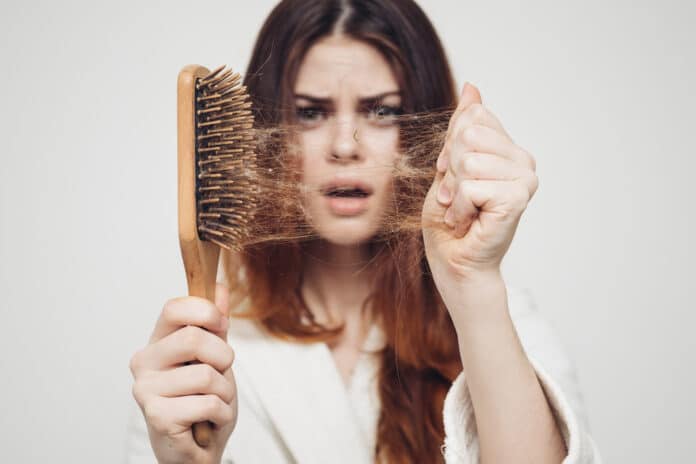
Healthy hair growth requires a number of nutritional ingredients, such as vitamins, minerals, protein, and healthy fatty acids.
Some examples of vitamins and minerals that your hair needs include:
● Vitamin A
● Vitamin B7
● Vitamin C
● Vitamin D
● Vitamin E
● Iron
● Zinc
If your body is lacking sufficient amounts of one or more of these nutrients, you might start to notice increased hair loss (and other health complications).
Because of this known association between nutrition and hair health, claims have been made that supplements can help treat hair loss.
Evaluating the Safety and Effectiveness of Nutritional Supplements
A brief look at the available clinical evidence would appear to confirm the suggestion that supplements can safely and effectively treat hair loss. But this research contains some important caveats you should be aware of.
Vitamin supplements are generally only helpful for people who have vitamin deficiencies. If you do not have inadequate levels of any particular nutrient, supplementing with extra nutrients beyond what is necessary will most likely not help your hair loss.
This was confirmed in a recent systematic review published in JAMA Dermatology. This research gathered all of the highest-quality studies on nutritional interventions for hair loss.
When the researchers analyzed the data from these studies, they found no strong evidence that most vitamin supplements would help in cases of hair loss not linked to nutritional deficiencies.
They did observe some potential benefits from multi-ingredient formulations, such as:
● Viviscal
● Nourkrin
● Nutrafol
● Lambdapil
● Pantogar
● Capsaicin + isoflavone
● Omega 3 and 6 fatty acids + antioxidants
● Pumpkin seed oil
However, it is not a guarantee that these will help your hair loss. It is always a good idea to consult with your doctor or dermatologist before trying a new supplement product that will affect your health.
Other Hair Loss Treatments
Supplements are not the only option for treating hair loss. There are many known causes of hair loss, and different forms of hair loss may require different treatment approaches.
Finasteride (Propecia) and minoxidil (Rogaine) are the two primary FDA-approved medications for treating hair loss. Unfortunately, finasteride has some potential side effects that may be worse for your health than hair loss, such as sexual dysfunction and depression.
This is one of the reasons why more people are exploring the possibility that supplements can be a safer alternative. But that doesn’t mean that vitamin supplements are safe for everyone. In fact, excess supplementation (without deficiency) can carry some dangerous risks that should not be overlooked.
Although vitamin supplements may seem harmless over the counter, misuse can quickly lead to potentially life-threatening complications. It is almost always safer and more effective to get all your vitamins and nutrition from healthy whole foods rather than supplements.
Your doctor or dermatologist can help you reach a diagnosis and treatment strategy that fits your situation.
And even if your hair cannot be perfectly restored, most cases of hair loss (without an underlying health condition) are not harmful in any way. You may be better off exploring avenues of emotional acceptance rather than trying treatments that may risk your health.


















